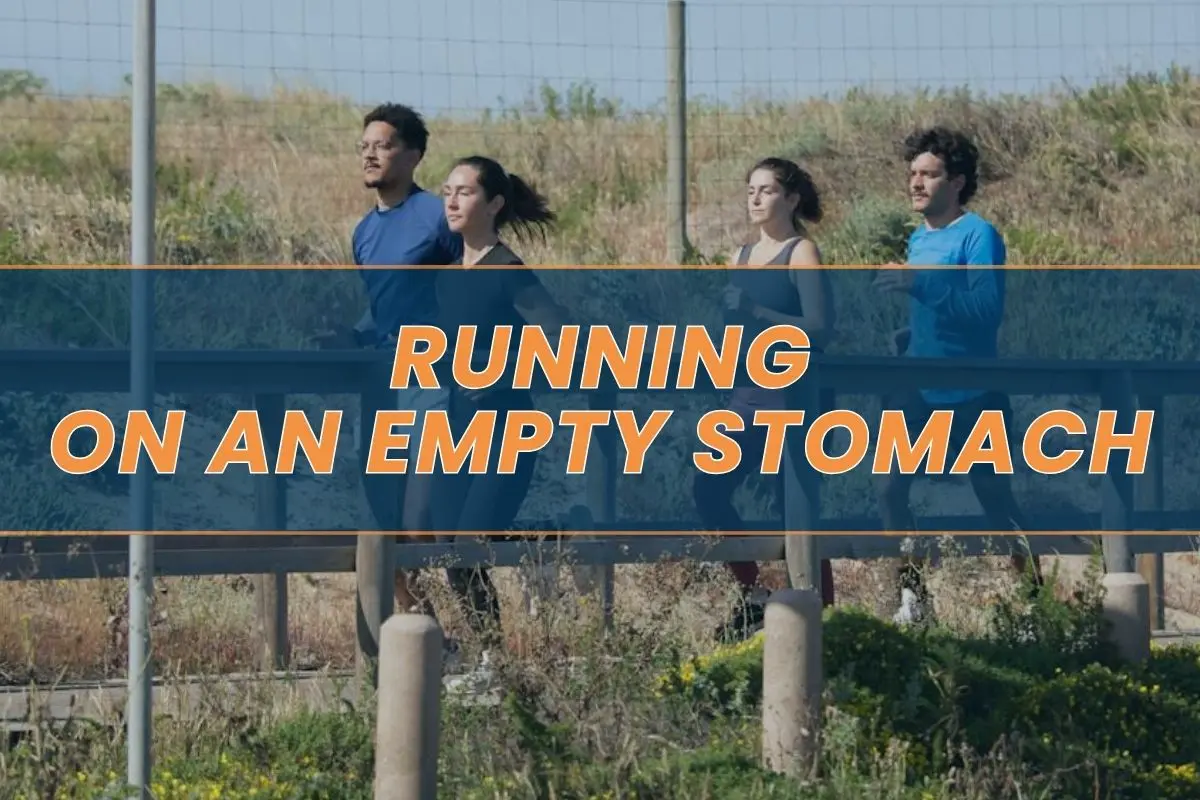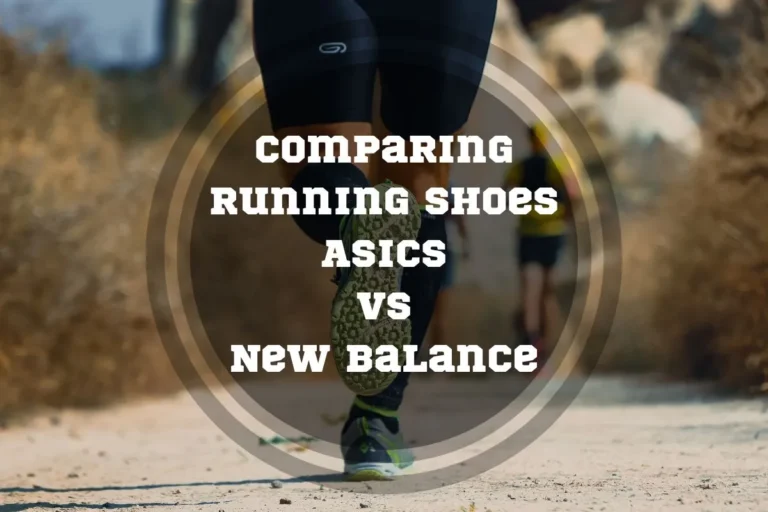Running on an Empty Stomach: Benefits and Risks
Running on an empty stomach can change the way you exercise and help enhance performance. The human body is able to achieve more with less when it comes to fuel, as long as other aspects of health are addressed properly. In this article, we will be exploring how running without food affects our bodies, what the possible benefits are, and which types of runners may benefit from fasting runs. Want to know if running on an empty stomach can work for your needs? Keep reading!
Should I Run on an Empty Stomach?
Running on an empty stomach encourages increased fat oxidation for use as fuel, as well as improved aerobic endurance. Benefits of running without eating include increased fat burn, improved aerobic endurance, reduced digestion problems, and improved blood sugar regulation.

Running on an Empty Stomach
Can you run on an empty stomach? When running without fuel, the body doesn’t have immediate access to energy from a meal, meaning that it needs to rely on its own metabolism and nutrients for fuel.
This can result in muscle protein breakdown, as well as reduced glycogen stores being used up during intense physical endurance events. This depletion of stored energy can limit your capacity to exercise hard, or for long periods of time.
Running on an empty stomach has several benefits for your health, but it is also important to consider the type of run you are doing and your individual situation.
Different types of runs and distances require different levels of energy expenditure. For instance, a long-distance runner who’s aiming for consistent performance requires greater amounts of carbohydrates than someone who is just going for an easy jog.
In addition, factors like activity level and fitness level should be taken into account, because they determine how much fuel your body needs in order to perform optimally.
Is It Good to Run on an Empty Stomach? The Benefits
Running on an empty stomach can offer a range of benefits. Let’s discuss them in detail:

1. Increased Fat Burn
Running on an empty stomach helps promote fat burning during a workout session. The body does not have any fuel before the run, which encourages it to use more of its stored resources for energy.
Fasted running induces higher fat oxidation compared to exercise in a fed state, leading to greater reliance on fat for fuel than normal. During a low-intensity run without food, your body needs other sources of energy, such as breaking down stored fats.
2. Improved Aerobic Endurance and Better Recovery
Running without eating has been found to improve aerobic endurance. When running without food or nutrients for fuel, fat oxidation increases significantly. This may result in a reduction of lactic acid levels and enhanced performance.
Endurance training while fasting can also increase fat oxidation efficiency at rest and improve post-exercise recovery times due to faster muscle glycogen replenishment.
3. Reduced Digestion Problems
Is it better to run on an empty stomach if you have digestion problems? When running without food, your body will rely on stored energy sources instead of taking in calories and nutrients from a meal. This causes your body to reduce its energy intake, which is beneficial if you are trying to alleviate indigestion, bloating, or cramping that can be caused by eating large meals before exercising.
Research also indicates that running without food may enhance nutrient absorption and improve metabolism and stomach function.
4. Improved Blood Sugar Regulation
Due to the increased work done by muscles during exercise, running on an empty stomach can lead to beneficial changes in glucose levels and insulin function. Exercising without food helps consume stored energy and burn more fat as fuel (as well as glucose), resulting in improved blood sugar regulation.
People with diabetes often have challenges controlling their blood sugar levels, especially if they are unaware of how meals or snacks affect them before a run. However, running without food has been found to be beneficial in this regard due to its ability to help lower both fasting and peak post-meal blood sugar.
Benefits of Running in the Morning on an Empty Stomach
Running on an empty stomach in the morning is becoming increasingly popular for runners who want to take their performance and weight loss goals to the next level. During a fasted workout, there are higher levels of free fatty acids that become available as a fuel source.
These levels remain elevated for several hours after exercise, which can help prevent muscle breakdown before you have time to refuel.

Pro Tip:
In general, high-intensity runs may not be optimal when done in a morning fasting state. However, short-distance running before breakfast, such as 5km or less, can be completed with good results.

Pro Tip:
In general, high-intensity runs may not be optimal when done in a morning fasting state. However, short-distance running before breakfast, such as 5km or less, can be completed with good results.
Is It Bad to Run on an Empty Stomach?
Running without fuel may pose potential risks for people with certain health conditions.

1. Reduced Training Intensity
When running on an empty stomach, the absence of food can result in decreased training intensity due to the lack of glycogen. During exercise, fuel is used up quickly, and our bodies need adequate energy from foods or drinks in order to perform.
Glycogen plays a key role in this process, as it is necessary for athletes who want to sustain higher levels of physical activity for longer periods. When exercising without eating properly beforehand, athletes may become fatigued much more quickly and struggle with higher-intensity runs, which rely on glycogen stores.
2. Higher Risk of Injury
When running without food, the body does not receive enough essential nutrients to provide fuel and energy for intense physical activity. This can cause fatigue and difficulty completing a workout or running in a safe manner.
Low blood sugar levels caused by lack of food may also lead to lightheadedness or dizziness during exercise, which can increase the risk of accidents due to lost balance or reduced coordination.
Subscribe to Our Running Newsletter!
Get free running tips from renowned professional athletes and discounts from top-notch brands.
3. Muscle Loss
The idea that running on an empty stomach can lead to muscle loss is a widely held belief in the gym, but there is actually little scientific evidence to support this. It’s true that running without food may result in higher levels of energy being derived from proteins, leading to catabolism and potential muscle breakdowns. However, such risks can be minimized with proper nutrition and a regular balanced diet.
Who Should not Run on an Empty Stomach?
It’s important to recognize that running on an empty stomach is not for everyone. People with certain medical conditions should avoid running without food, as it can put them at a higher risk of dangerous health issues.
Running without food can lead to a variety of potential risks for certain conditions, such as diabetes and Addison’s disease. For example, those with diabetes may be at risk of hypoglycemia (low blood sugar). This condition is also known as “bonking” and may cause the runner to feel lethargic or lightheaded due to low energy levels in the blood system during exercise.
Similarly, those with pre-existing digestive issues should avoid running without fuel. This could make symptoms worse, leading to cramping, nausea, or diarrhea during your run.
People with Addison’s disease need extra caution when undertaking fasting workouts, due to their increased vulnerability following long periods without food or hydration. This can further deplete the hormones required for proper functioning of the adrenal glands.

Pro Tip:
It’s also recommended that those who are uncomfortable exercising on an empty stomach or who tend to experience digestive issues while running (such as acid reflux) should consider having a light meal before a run.

Pro Tip:
It’s also recommended that those who are uncomfortable exercising on an empty stomach or who tend to experience digestive issues while running (such as acid reflux) should consider having a light meal before a run.
Anyone considering fasting before going for a run should consult their doctor and not go beyond what their body can handle in terms of training intensity and duration.
Who Should Eat Before a Run?
Is it okay to run on an empty stomach for everybody? The answer to this question is highly individual, as it depends on a variety of factors, such as the distance and runner’s fitness and health. If you are going out for a run that is more than an hour long, or planning to run in a race, it’s usually best to fuel with food before the run.
For shorter runs (30 minutes or less), you may be able to get away with not eating anything pre-run. However, there are certain conditions where fueling up beforehand can be advantageous, even during short runs (like having low blood sugar levels or dealing with digestive issues).
If you have diabetes, hypoglycemia, or other similar health conditions, it’s important to eat something before running in order to prevent the effects of these conditions from impairing your performance.
Frequently Asked Questions About Running on an Empty Stomach
Is It Better to Run on an Empty Stomach or a Full Stomach?
Running on an empty stomach may offer some advantages, such as increased fat burn, improved aerobic endurance, reduced digestion problems, and better blood sugar regulation. However, for most people, running without food will lead to lower training intensity due to limited glycogen availability, which can also increase risk of injury or muscle loss.
Can Running on an Empty Stomach Make Your Stomach Hurt?
Yes, running on an empty stomach can cause a range of uncomfortable symptoms, from cramps and stomach pain to nausea and vomiting. This is because, when you don’t eat before running, your body has less energy available to fuel the physical activity.
Is Running on an Empty Stomach Good for Weight Loss?
While there are potential benefits of fasting and running on an empty stomach, you may not experience any weight-loss advantages associated with this type of exercise compared to traditional diets. The effectiveness, in terms of weight loss, will depend on numerous factors, including your current health status and level of fitness.
Final Thoughts on Running on an Empty Stomach
Running on an empty stomach can have potential benefits, such as increased fat burn, improved aerobic endurance, and regulated blood sugar levels. However, it is also essential to consider the fitness and health of the runner when determining whether running without food is beneficial or detrimental.
People with chronic health conditions should exercise caution when running without food, since there may be additional risks involved that could affect these conditions further. Be sure to consult your doctor before starting any physical activity on an empty stomach.
Have you ever tried running on an empty stomach? Please share your experience in the comments below.
Also Read:
- Best Running Shoes for Ball of Foot Pain
- Best Recovery Drink for Runners
- How to Wash Brooks Shoes
- Best Microspikes for Running
- How Long Does It Take To Walk 2 Miles
- Nude Running
- Why Is Running So Hard
References:
- American Diabetes Association. Eating Tips before and after Exercise https://diabetes.org/health-wellness/fitness/eating-tips-before-after-exercise (accessed November 16, 2023)
- Asya Barutcu et al. “Planned morning aerobic exercise in a fasted state increases energy intake in the preceding 24 h.” European journal of nutrition vol. 60,6 (2021): 3387-3396 https://link.springer.com/article/10.1007/s00394-021-02501-7
- Hassane Zouhal et al. “Exercise Training and Fasting: Current Insights.” Open access journal of sports medicine vol. 11 1-28. 21 Jan. 2020 https://www.dovepress.com/exercise-training-and-fasting-current-insights-peer-reviewed-fulltext-article-OAJSM
- Tae Woon Kim et al. “Comparison of the effects of acute exercise after overnight fasting and breakfast on energy substrate and hormone levels in obese men.” Journal of physical therapy science vol. 27,6 (2015): 1929-32 https://www.ncbi.nlm.nih.gov/pmc/articles/PMC4500013/
- Tommy Slater et al. “Fasting Before Evening Exercise Reduces Net Energy Intake and Increases Fat Oxidation, but Impairs Performance in Healthy Males and Females.” International journal of sport nutrition and exercise metabolism vol. 33,1 11-22. 28 Sep. 2022 https://journals.humankinetics.com/view/journals/ijsnem/33/1/article-p11.xml
If you have any questions or suggestions, you can contact us via email – [email protected]






